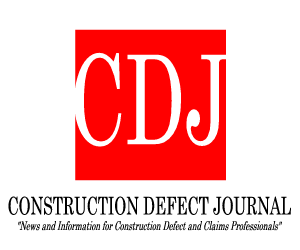
Ted R. Gropman, Partner, and Cindy J. Lee, Associate, analyze Crosno Construction, Inc. v. Travelers Casualty & Surety Company of America.
On April 17, the California Court of Appeal decided Crosno Construction, Inc. v. Travelers Casualty & Surety Company of America,1 effectively narrowing the scope of enforceable “pay-when-paid” provisions in construction subcontracts to the extent the subcontractor seeks recovery against a general contractor’s payment bond surety. Although the Crosno case involved a public works project, the rationale and holding should apply with equal force to private works projects. Basing the bulk of its decision on the Wm. R. Clarke Corp. v. Safeco Insurance Co.2 case, the court found that an open-ended “pay-when-paid” provision in a subcontract is not enforceable against a subcontractor that seeks to recover on a public works payment bond claim. This article discusses the Crosno decision and the implications for contractors on both sides of the contract moving forward.
Brief Case Summary
In Crosno, general contractor Clark Bros., Inc. contracted with the North Edwards Water District (the District) to build an arsenic removal water treatment plant. Clark hired steel storage tank subcontractor Crosno Construction, Inc. to build and coat two steel reservoir tanks. Clark and Crosno’s subcontract included a “pay-when-paid” provision, which stated that Clark would pay Crosno within a “reasonable time” of receiving payments from the owner, but “in no event less than the time Contractor and Subcontractor require to pursue to conclusion their legal remedies against Owner or other responsible party to obtain payment.” After Crosno completed its work, a dispute arose between Clark and the District, and the District withheld payment from Clark (including the monies earmarked for Clark’s subcontractors). Clark sued the District for payment, and Crosno filed its own action against Travelers Casualty and Surety Company of America, the surety on Clark’s statutory public works payment bond, for recovery of the unpaid subcontract balance. Travelers rejected Crosno’s bond claim as premature, invoking the “pay-when-paid” subcontract language and pointing to Clark’s pending payment action against the District. The issue on appeal was whether the “pay-when-paid” provision in the subcontract blocked Crosno from recovering under the payment bond from Travelers while Clark’s lawsuit against the District was still pending.
Reprinted courtesy of Ted R. Gropman, Pepper Hamilton LLP and Cindy J. Lee, Pepper Hamilton LLP
Mr. Gropman may be contacted at ted.gropman@troutman.com
Ms. Lee may be contacted at cindy.lee@troutman.com




